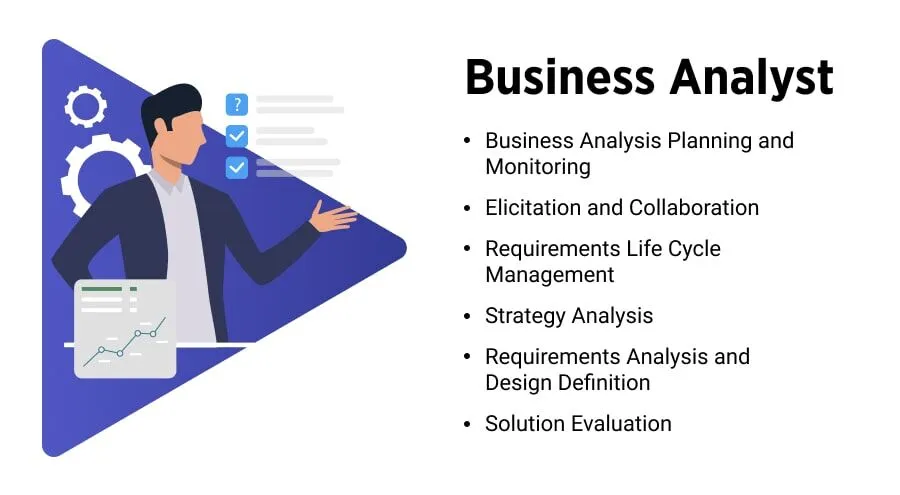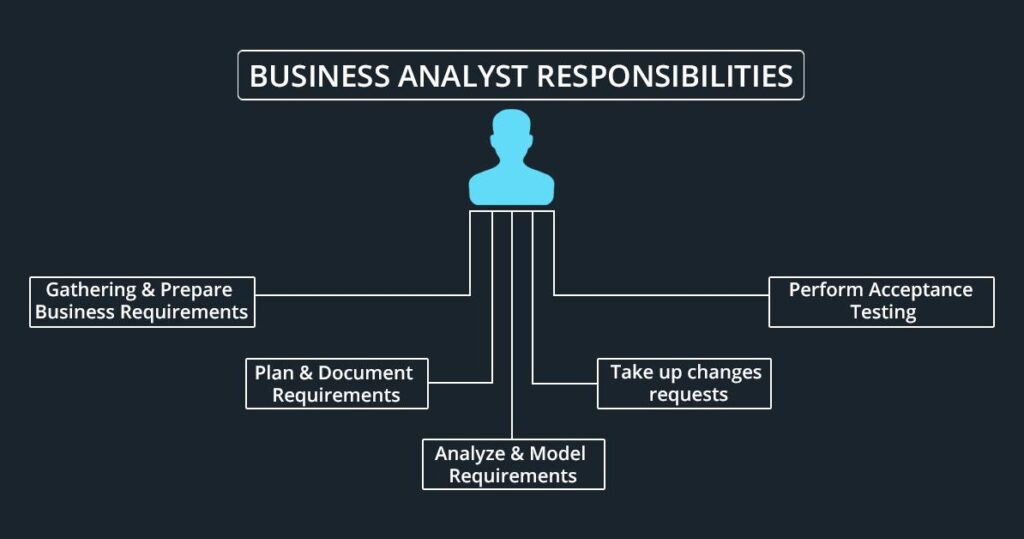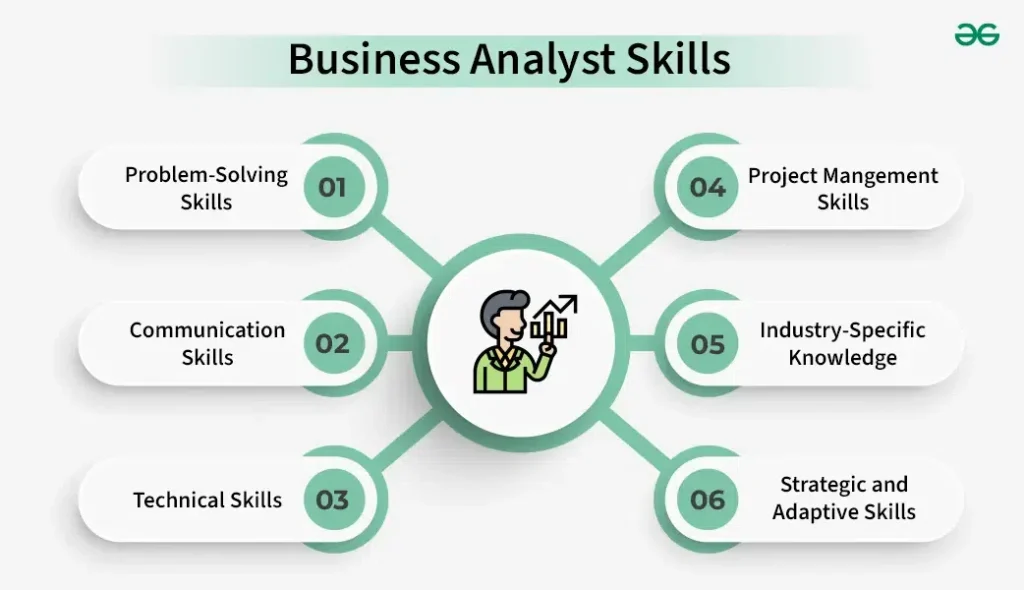What is a Business Analyst?
A Business Analyst (BA) acts as a bridge between business stakeholders and technical teams, ensuring that the business requirements are effectively translated into solutions. They identify business needs, analyze processes, and recommend data-driven strategies to improve efficiency, productivity, and profitability.

Key Responsibilities of a Business Analyst
- Work with stakeholders to understand their needs and document functional and non-functional requirements.
Stakeholder Communication:
- Act as a liaison between business teams, IT departments, and other stakeholders to ensure alignment.
Process Improvement:
- Analyze current business processes and identify areas for improvement.
Solution Design:
- Collaborate with technical teams to design solutions that meet business objectives.
Documentation:
- Create detailed business requirement documents (BRDs), system requirement specifications (SRS), and use cases.
Testing and Validation:
- Participate in system testing to ensure the solution meets business requirements.
Data Analysis:
- Use data to identify trends, provide insights, and inform decision-making.
Change Management:
- Assist in planning and managing changes to business processes or systems.

Skills Required for a Business Analyst
Analytical Thinking:
- Ability to break down complex problems and identify solutions.
Communication Skills:
- Strong verbal and written communication for interacting with stakeholders.
Technical Knowledge:
- Familiarity with databases, tools like SQL, and systems development life cycles (SDLC).
Problem-Solving:
- Crafting actionable strategies to overcome business challenges.
Project Management:
- Understanding of project timelines, deliverables, and milestones.
Tools Proficiency:
- Business analysis tools: JIRA, Trello, or Confluence.
- Data analysis tools: Excel, Tableau, Power BI.
Domain Knowledge:
- In-depth understanding of the specific industry (e.g., healthcare, finance, retail).

Types of Business Analysts
IT Business Analyst:
- Focuses on software development and IT projects.
Functional Business Analyst:
- Specializes in analyzing specific business functions, such as marketing or supply chain.
Data Analyst:
- Works primarily with data to derive actionable insights.
Systems Analyst:
- Concentrates on technical aspects, such as system requirements and software architecture.
Role of a Business Analyst in a Project
Initiation Phase:
- Define project scope, objectives, and stakeholders.
Planning Phase:
- Gather requirements and document business needs.
Execution Phase:
- Collaborate with developers, testers, and stakeholders to implement solutions.
Testing Phase:
- Validate the system against business requirements.
Delivery Phase:
- Ensure the solution meets user expectations and provide training if needed.
Tools and Techniques for Business Analysts
Modeling Techniques:
- UML (Unified Modeling Language)
- BPMN (Business Process Model and Notation)
Requirement Elicitation Techniques:
- Workshops, interviews, focus groups.
Documentation Tools:
- Microsoft Word, Visio, and Lucidchart.
Project Management Tools:
- JIRA, Trello, Asana.
Data Analysis Tools:
- Excel, SQL, Tableau, Power BI.
Why Business Analysts are Important
Bridging the Gap:
- Connect technical solutions with business goals.
Improving Efficiency:
- Identify inefficiencies and recommend optimizations.
Reducing Costs:
- Ensure solutions are cost-effective and aligned with business strategies.
Enhancing Decision-Making:
- Provide insights based on thorough analysis and research.
Career Path of a Business Analyst
Entry-Level:
- Junior Business Analyst, BA Trainee.
Mid-Level:
- Business Analyst, Functional Analyst.
Senior-Level:
- Senior Business Analyst, Lead Analyst.
Leadership Roles:
- Product Manager, Project Manager, Business Consultant.
Specialized Roles:
- Data Analyst, Systems Analyst, Process Analyst.
Industries Hiring Business Analysts
Finance:
- Analyzing financial operations and systems.
Healthcare:
- Improving patient care and operational efficiency.
Retail:
- Optimizing supply chain and customer experiences.
Technology:
- Developing software and IT systems.
Manufacturing:
- Streamlining production processes.
Key Benefits of Becoming a Business Analyst
High Demand:
- With digital transformation, businesses need analysts more than ever.
Diverse Opportunities:
- Work in various industries and domains.
Problem-Solving Role:
- Opportunity to tackle real-world business challenges.
Lucrative Salary:
- Business analysts are well-compensated for their critical role.
Career Growth:
- Provides a strong foundation for leadership roles.
Conclusion
A Business Analyst plays a pivotal role in shaping the success of projects and business initiatives by aligning business needs with technical solutions. The combination of problem-solving skills, analytical expertise, and communication abilities makes the BA a cornerstone in modern organizations. As businesses increasingly rely on data and technology, the role of a Business Analyst continues to grow in importance.